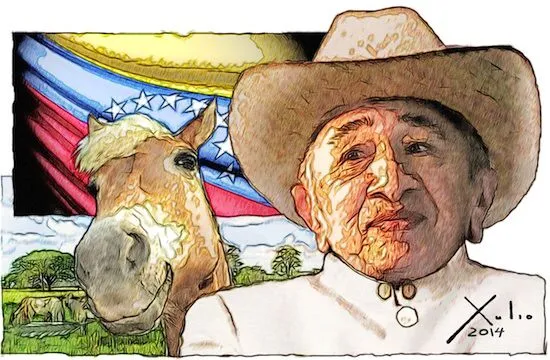
Muchas veces hemos escuchado este tema pero pocos lo saben todo sobre él, algunos corean las letras sin siquiera profundizar en su significado, pero la verdad es que es un tema profundo y significativo que todos nosotros como venezolanos deberíamos conocer y apreciar. En el siguiente artículo les revelaré el origen y algunas curiosidades de este famosísimo tema.
Many times we have heard this song but few know everything about it, some chant the lyrics without even delving into its meaning, but the truth is that it's a deep and meaningful song that all of us as Venezuelans should know and appreciate. In the following article I will reveal the origin and some curiosities of this very famous song.

"Caballo Viejo" es un tema musical escrito por el catautor venezolano Simón Díaz en 1979, y en 1980 fue incluido en su disco "Golpe y Pasaje" sin embargo fue internacionalizada por el cantante cubano Roberto Torres, quien lo versionó en Salsa Vallenata.
"Caballo Viejo" (Old Horse) is a song written by the Venezuelan songwriter Simón Díaz in 1979, and in 1980 it was included in his album "Golpe y Pasaje", however it was internationalised by the Cuban singer Roberto Torres, who covered it in Salsa Vallenata.
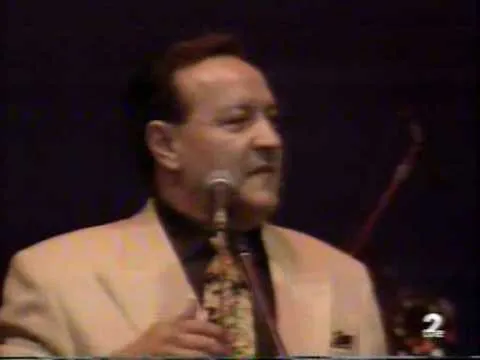
La canción nos habla del amor que surge en un hombre que ya tiene una edad un poco avanzada, son sentimientos que van dirigidos a una mujer mucho más joven que él, entonces él comienza a ver renovadas sus esperanzas, se siente rejuvenecido y pleno.
The song tells us about the love that arises in a man who is already a bit older, feelings that are directed to a woman much younger than him, then he begins to see his hopes renewed, he feels rejuvenated and fulfilled.

El impacto y alcance que ha tenido esta canción ha sido enorme, ya que no solo se ha versionado en diversos géneros musicales (existen más de trescientas versiones) sino que además se ha traducido a 12 idiomas, pero ¿existe alguna historia en torno a esta popular canción o solo fue producto de la imaginación y ya?
The impact and reach of this song has been enormous, as not only has it been covered in various musical genres (there are more than 300 versions) but it has also been translated into 12 languages, but is there a story behind this popular song or was it just a figment of the imagination?
Pues sí, esta famosa canción tiene un origen que va mucho más allá de la prodigiosa imaginación de su autor, el tema nació en una noche de contrapunteo, que no es más que una improvisación de versos que hacen dos cantantes de música típica venezolana, con la finalidad de demostrar sus habilidades creativas y su destreza con las rimas.
Yes, this famous song has an origin that goes far beyond the prodigious imagination of its author, the song was born in a night of contrapunteo, which is nothing more than an improvisation of verses by two singers of typical Venezuelan music, with the aim of demonstrating their creative abilities and their skill with rhymes.
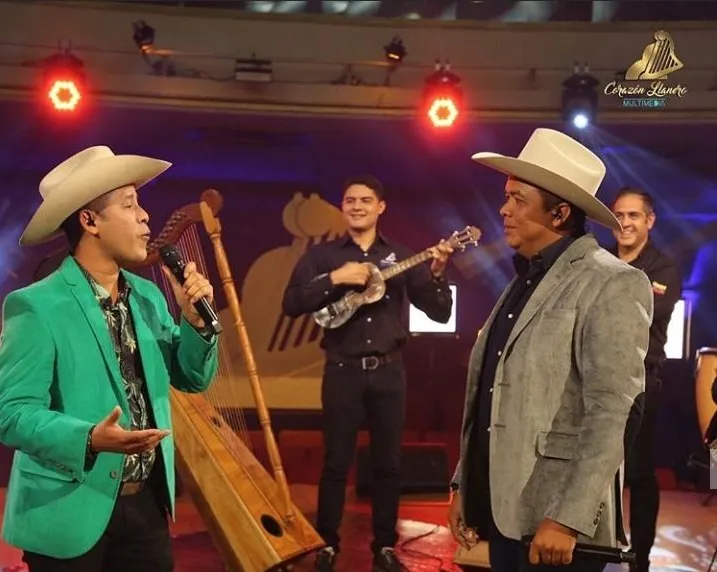
Por aquel tiempo, Simón Díaz tenía que grabar un video musical en un pueblo llamado San Fernando de Apure, y solicitó a su equipo que llevara a un grupo de música típica llanera venezolana para amenizar el ambiente, sin embargo, cuando llegaron los músicos, Simón Díaz vio entre ellos a una hermosa cantante de 19 años llamada Maigualida Varela, entonces durante la noche cuando se llevaba a cabo una fiesta, Simón que en esa época tenía 51 años años, comenzó a improvisar versos para intentar conquistar a la muchacha, pero inmediatamente, su novio, ofendido empezó a improvisar versos también, aduciendo, entre otras cosas, que Simón era demasiado viejo para ella, iniciando de esta manera un acalorado contrapunteo.
At that time, Simón Díaz had to make a video clip in a village called San Fernando de Apure, and he asked his team to bring a group of typical Venezuelan llanera music to liven up the atmosphere, however, when the musicians arrived, Simón Díaz saw among them a beautiful 19 year old singer called Maigualida Varela, Then, during the night when a party was taking place, Simón, who was 51 years old at the time, began to improvise verses to try to conquer the girl, but immediately, her boyfriend, offended, began to improvise verses as well, arguing, among other things, that Simón was too old for her, thus initiating a heated musical contrapunteo.
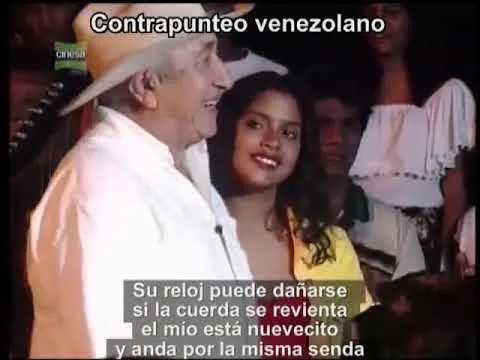
Entre versos, él terminó aceptando que era cierto que estaba viejo mientras su oponente era joven y podía hasta quitárse a las mujeres de encima, algo que resalta en el verso de la canción "El Potro da tiempo al tiempo porque le sobra la edad, caballo viejo no puede perder la flor que le dan, porque después de esta vida no hay otra oportunidad"
Between verses, he ended up accepting that it was true that he was old while his opponent was young and could even get women off his back, something that stands out in the song's verse "The colt gives time to time because he has plenty of time, old horse can't lose the flower he is given, because after this life there is no other chance."
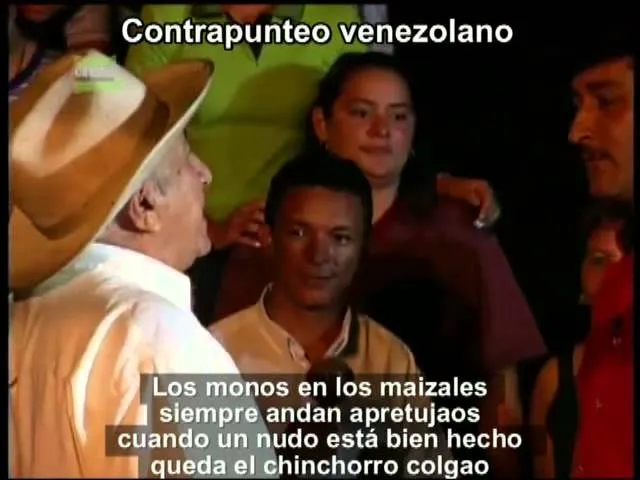
A pesar de su derrota, el publico estalló en aplausos ante su forma poética de expresarse, y él comprendió que ya tenía un tema maravilloso que después de pulir un poco sería perfecto y probablemente se volvería un éxito, y vaya que así fue.
Despite his defeat, the audience erupted in applause at his poetic way of expressing himself, and he realised that he already had a wonderful song that after a little polishing would be perfect and would probably become a hit, and indeed it did.
Sin embargo el cantante contó en entrevistas que había recibido ciertos consejos para cambiar algunas palabras muy propias del país, con la intención de internacionalizar la canción, palabras como "Carutal" que se refiere a una zona donde hay varios árboles de Caruto, un árbol que crece cerca del río Orinoco, y "Guamachito" que se refiere a un cactus que tiene flores amarillas, pero él se negó a eliminar esas palabras con la intención de darlas a conocer, y personalmente creo que fue mejor así, pues de esta manera más bien se internacionalizó nuestro argot popular.
However, the singer said in interviews that he had received some advice to change some words very typical of the country, with the intention of internationalising the song, words like "Carutal" which refers to an area where there are several Caruto trees, a tree that grows near the Orinoco River, and "Guamachito" which refers to a cactus that has yellow flowers, but he refused to eliminate those words with the intention of making them known, and personally I think it was better this way, because in this way it rather internationalised our popular slang.
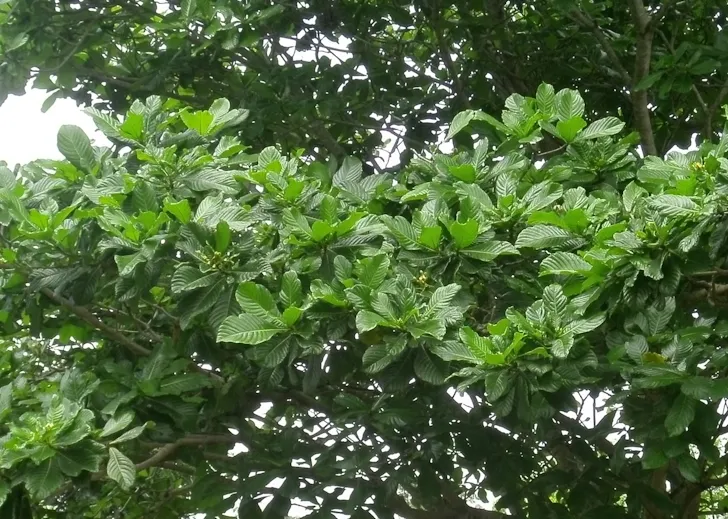
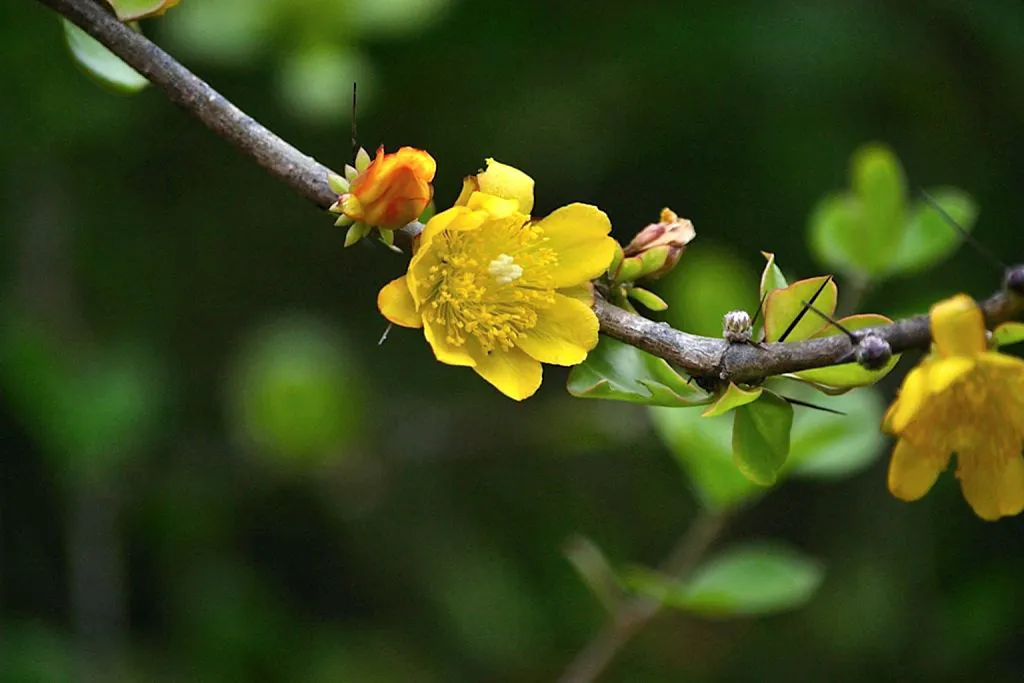
A pesar de que esta información es del dominio publico ya que el cantante la ha dado a conocer en múltiples entrevistas, yo no la sabía, sino hasta hace varios años cuando él mismo la contó en uno de sus conciertos al que asistí con mi familia.
Although this information is public knowledge as the singer has made it known in multiple interviews, I didn't know it until several years ago when he told it himself at one of his concerts that I attended with my family.

Esto ha sido todo por hoy, amigos espero que les haya gustado la información, quise compartirla con ustedes después de que mi familia y yo, en medio de una conversación, estuvimos recordando el concierto al que asistimos y surgió la historia de la canción. Muchas gracias por su atención.
That's all for today, friends I hope you liked the information, I wanted to share it with you after my family and I, in the middle of a conversation, were remembering the concert we attended and the story of the song came up. Thank you very much for your attention.

Imagen diseñada por mi en el editor de Canva